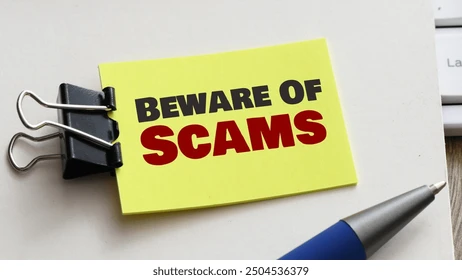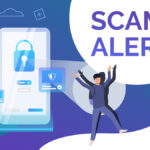In today’s world, scam calls have become a common occurrence. One such number that has raised red flags is 503-821-7264. Many people have reported this number as a scam, claiming they received suspicious calls that seemed too good to be true or even threatening. Understanding how to handle these calls is essential for your safety. This article will provide you with in-depth knowledge about the 503-821-7264 scam, what to do if you receive a call from this number, and how to protect yourself from future scams.
Overview of the 503-821-7264 Scam
What Type of Scam is Associated with 503-821-7264?
The 503-821-7264 number is linked to various types of scams. Some common types include:
- Impersonation Scams: Scammers often pose as government officials, tech support, or even representatives from legitimate companies. They may claim there is an issue that needs immediate attention.
- Financial Scams: Many scams revolve around money, including fake lotteries, investment opportunities, or loan offers. Scammers may promise large sums of money in exchange for personal information or upfront fees.
- Urgency Tactics: Scammers frequently create a sense of urgency to trick you into making quick decisions. They may say that your account is compromised or that you owe money, pushing you to act without thinking.
Reports from Individuals
Several people have reported negative experiences with the 503-821-7264 number. Victims have shared their stories online, highlighting how they felt pressured or confused during the call. Some reported losing money after providing personal details. These accounts serve as a warning to others, emphasizing the need to be cautious when dealing with unknown numbers.
Signs That 503-821-7264 is a Scam
Red Flags to Look Out For
Identifying scam calls can be tricky, but there are common signs to help you recognize them:
- Unusual Requests for Personal Information: Scammers often ask for sensitive information like Social Security numbers, bank account details, or credit card numbers. Legitimate companies will never request this information over the phone.
- Offers That Sound Too Good to Be True: If someone promises you money or prizes for little to no effort, it’s likely a scam. Always be sceptical of deals that seem unusually favourable.
- High-Pressure Sales Tactics or Threats: Scammers may use aggressive language or threats to create fear. They might say that if you don’t comply, legal action will be taken against you. Remember, legitimate organizations do not threaten individuals over the phone.
Identifying Common Characteristics of Scam Calls
Most scam calls share similar traits. These calls often:
- Come from unfamiliar numbers or use fake Caller ID information.
- Lack of professionalism in their tone or presentation.
- Are made at odd hours, such as late at night or very early in the morning.
What to Do if You Receive a Call from 503-821-7264
Immediate Steps to Take
If you receive a call from 503-821-7264, it’s essential to remain calm and not engage with the caller. Here’s what you should do:
- Do Not Engage or Provide Any Information: Hang up the phone immediately if you feel uncomfortable or suspicious. Engaging with the caller can lead to further attempts to scam you.
- Hang Up if the Call Seems Suspicious: Trust your instincts. If something feels off, don’t hesitate to end the conversation.
Reporting the Scam
Reporting scams is crucial in helping authorities track down scammers and protect others. Here’s how to report the 503-821-7264 scam:
- Report to Local Authorities: You can file a report with your local police department. They may not always be able to take immediate action, but your report adds to the larger picture of scam activity in your area.
- Report to the FTC: The Federal Trade Commission (FTC) allows you to report fraud online. This helps them gather data on scams and educate the public.
- Importance of Reporting: Sharing your experience can help others avoid falling victim to the same scams. The more information authorities have, the better they can address these issues.
Blocking the Number
If you want to take additional steps, consider blocking 503-821-7264 on your phone. Here’s how to do it on various devices:
- iPhone: Go to the recent calls list, tap the “i” icon next to the number, scroll down, and select “Block this Caller.”
- Android: Open the phone app, go to recent calls, tap on the number, select “Block/report spam.”
- Landline: If you receive a call on a landline, check if your provider offers call-blocking features.
Protecting Yourself from Future Scam Calls
Tips to Avoid Falling Victim to Scams
To safeguard yourself against future scams, consider the following tips:
- Register for the National Do Not Call Registry: This registry allows you to opt-out of unsolicited sales calls. While it won’t stop all scam calls, it can reduce the number of legitimate telemarketing calls you receive.
- Use Call-Blocking Apps or Services: Many smartphones come with built-in call-blocking features. Additionally, there are apps available that can help identify and block scam calls before they reach you.
Educating Friends and Family About Scams
It’s essential to spread awareness about scams to help others stay safe. Here’s how you can help:
- Share Information: Talk to friends and family about the 503-821-7264 scam and similar scams. Sharing experiences can help others recognize and avoid these calls.
- Encourage Discussions: Organize discussions or information sessions about scams, especially for older relatives who may be more vulnerable.
Conclusion
Scam calls, like those from 503-821-7264, are becoming more prevalent, making it essential for everyone to be informed. Recognizing the signs of a scam, knowing how to respond, and taking proactive steps to protect yourself are crucial in today’s environment. By staying vigilant and sharing information, we can help reduce the number of victims and create a safer community.
If you ever receive a call from 503-821-7264 or any other suspicious number, remember to remain calm, hang up, and report the incident. Awareness and action are key to protecting yourself from scams. Stay informed, and don’t let scammers take advantage of you or your loved ones.


